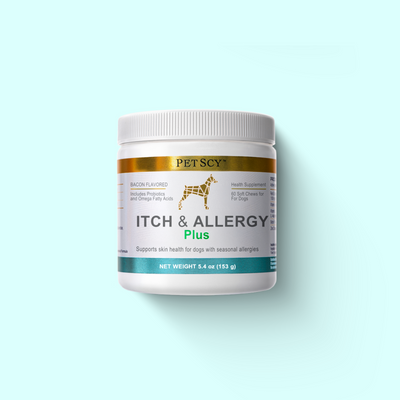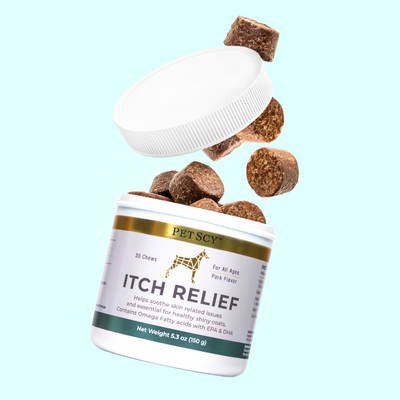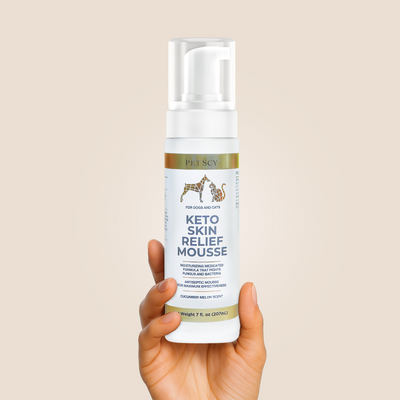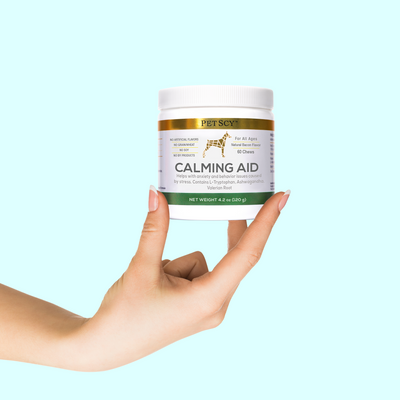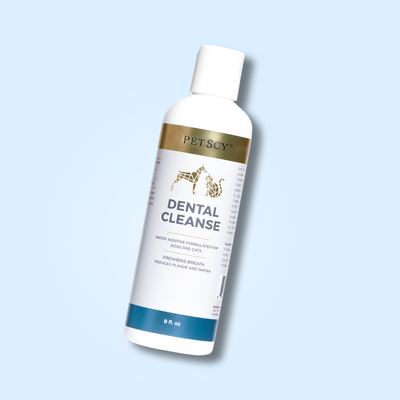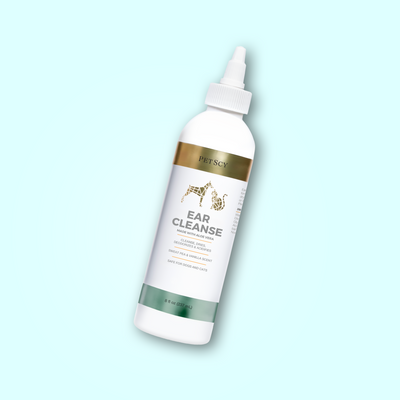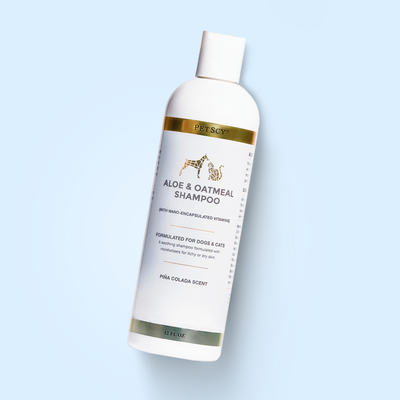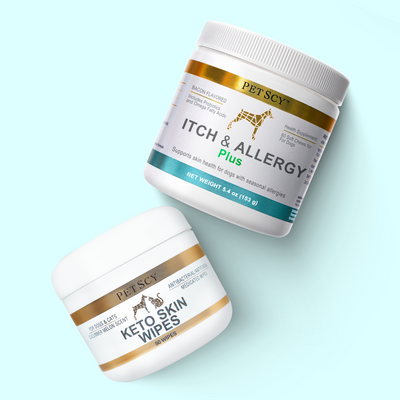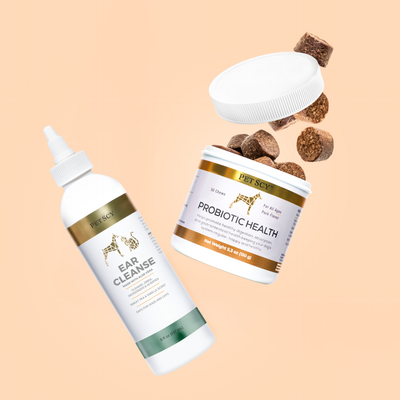
Does your dog have allergies?
Spotting the signs of allergies in your dog can sometimes be tough. After all, they can’t recognize the problem themselves and they certainly can’t tell you what is bothering them. If you notice certain signs and symptoms in your dog, they can often be an indicator of untreated allergies.
Many dogs are prone to allergies. Certain breeds are more susceptible. For instance, pit bulls are prone to having skin issues and seasonal allergies.
One of the tell-tale signs your dog is having allergy troubles is excessive itching. This itching often comes along at certain times of year, depending on when certain flora and fauna are blooming, or it could be a result of something your dog ate. Dogs can be allergic to a variety of different things, just like humans, and it’s often hard to figure out the culprit. But if your dog has suddenly been scratching a lot, something is wrong. If you’ve ruled out fleas and other health concerns, allergies could be the culprit.
Many dogs will scratch so much they itch their fur off. If you notice excessive licking or scratching, keep a lookout for missing hair or even hot spots. Hot spots occur when your dog has licked or scratched their skin off, and an infection of the site occurs. The site of the hot spot will often be raw and possibly bloody. The resulting infection from a hot spot will often cause more itching, and will cause a vicious cycle of itching and scratching. Hot spots often require a trip to the vet for a prescription and can make your dog very sick if left untreated.
Another telltale sign of allergies is one you might not expect: an unpleasant odor. If you are noticing that your dog has been smellier than usual, it might actually be allergies. Their skin will also often become greasy to the touch as well. If your dog doesn’t normally have these types of problems, and you are good about their hygiene and regular baths, allergies could be to blame.
Ear irritation can be a sign of allergies, too. If you notice that your dog is scratching at their ears a lot, shaking their head, or the inside of their ears are abnormally red, these could be signs of allergies. These ear-related symptoms are some of the first many pet owners notice when their dog is suffering from allergies. Stereotypical sneezing is another symptom you might notice in a pet suffering from allergies.
Alas, if your dog does have allergies, it’s not something they simply have to suffer through. There are options available to treat and prevent them from occurring.
If you are already noticing signs, there are a couple things you can do to ease your dog’s symptoms. A medicated bath with soothing ingredients such as oatmeal can often be helpful in easing the itching that your dog is experiencing. However, be sure not to use any type of shampoo that might cause dryness. This will only exacerbate your dog’s problems. You can look for a shampoo specifically formulated for allergy relief at any pet store or online.
A simple dose of an over-the-counter antihistamine is another way to treat symptoms if they are already occurring. However, it’s always very important to contact your veterinary professional before giving your dog any medication (even over-the-counter), so that they can prescribe the correct dosage. Any medication can be dangerous for a dog if given in the incorrect quantity, and what works for one dog might not work for another.
Treating allergy symptoms when they are occurring is necessary to keep your dog comfortable, but the best way to treat allergies in dogs is to prevent them from occurring in the first place. If your dog has a chronic untreatable form of allergies, it might be necessary to seek guidance from your vet. However, an easy option to try first for common environmental or seasonal allergies is an allergy chew that has vitamins and minerals that prevent allergy symptoms.
Ingredients like Vitamins E and Zinc are great at boosting your dog’s immune system, which will keep them healthy and able to fight off the immune response caused by allergies. When your dog has allergies, the itching they experience occurs when their body reacts to the outside pathogens by creating an often unnecessary immune response. Their body kicks into overdrive to create antibodies to fight off the outside pathogens that it sees as a threat. These antibodies cause an inflammatory response in your dog’s body, which can lead to the itchiness you see them experiencing.
In order to prevent this, you can start at the root of the issue by giving your dog vitamins that are anti-inflammatory. Omega-3 fatty acids and Vitamin C will keep inflammation at bay, and help prevent some of the skin irritation that your dog experiences as a result of allergies.
You can find allergy chews formulated with all of the necessary ingredients to prevent allergies, rather than having to supplement your dog with multiple different vitamins and minerals. Giving your dog daily allergy chews is a quick and easy way to provide your dog with an all-in-one solution of everything they need to keep allergies at bay. Plus, they taste good as well, so your dog won’t mind it one bit.
If your dog’s allergy is food-related rather than environmental, you might notice some additional symptoms like digestive distress or weight loss. To treat this type of allergy, you first have to find the cause. You can try to narrow down the cause by switching up your dog’s food. If you suspect gluten might be a factor, try a gluten-free food to see if your dog’s condition improves. Same goes for other common allergy-inducing ingredients like corn, chicken, etc. By swapping out different ingredients one at a time, you can try to get to the cause of the allergy. You can also give your dog a hypo-allergenic food for a few weeks, and slowly start to add in new foods to see if they cause any issues. An allergy test can also be given by your vet if you are unable to solve the problem on your own. Food-related allergies are often easier to treat, because you can just remove the trigger food from your dog’s diet once you have figured out the culprit. Whereas, environmental triggers like grass or pollen are close to impossible to avoid.
By figuring out the cause of your dog’s allergy symptoms and preventing allergy symptoms before they begin, you can help your dog live a comfortable, itch-free life.
Follow us on Facebook, Instagram, and Twitter for more tips and to be the first to know about any limited-time discounts and giveaways!
